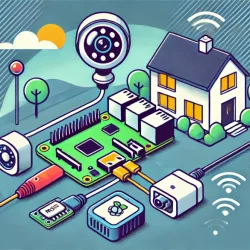4 Car Crash Injury Symptoms That You Should Never Ignore
After a car, motorcycle or pedestrian accident, many people do not notice any symptoms or injuries right away. The reason for this because of the adrenaline rush that naturally occurs after something stressful, like an accident.
Have you ever heard of athletes who get injured during a game and keep playing without noticing it? That is because the body generates adrenaline and endorphins during high-stress events. So, during high-stress events like these, you might feel increased energy and even a lack of pain. However, just because you feel fine after a car accident doesn't mean that everything is okay. There are some seemingly minor symptoms that you should never ignore. If you experience any of them, you should immediately seek medical help. They are major red flags. Even if you are not sure if something is serious or not, you should still have a doctor take a look at it, as the old saying goes "when in doubt, check it out."
#1 Abdominal Pain
You might think that a little abdominal pain is to be expected after an accident. However, this is a symptom that you should never ignore. It could be a sign of a severe and deadly problem — internal bleeding.
Internal bleeding is one of the most severe consequences of an accident. Sometimes, internal bleeding is evident because of the extent of the injuries. However, that is not always the case. It may occur after a less severe injury and could be delayed by hours or even days. Internal bleeding can be caused by penetrating trauma, which is when a foreign object enters the body.
This kind of injury is usually apparent. However, it can also be due to blunt trauma from something crashing into your body at high speed, such as what could occur in a car accident. Stomach pain is one sign of internal bleeding. Other signs of internal bleeding include dizziness, fainting, lightheadedness, intensely purple skin, swelling, and headache. As the bleeding gets worse, symptoms may progress to include seizures and coma.
#2 Fatigue or Drowsiness
Fatigue or drowsiness is another outwardly harmless symptom that could signal something that is potentially fatal if left untreated, a traumatic brain injury. Traumatic brain injury occurs when there is a violent blow or jolt to the head. A penetrating object can also cause a traumatic brain injury.
People who have a traumatic brain injury can face lasting effects to their cognitive, emotional and physical abilities. However, the symptoms may not be noticeable at the time of injury. It could be weeks or even months before symptoms also appear. When symptoms do occur, they are often subtle and easily missed. An example of one such sign is fatigue, which may be easily chalked up to the effect of the accident. Other symptoms include nausea, headaches, poor concentration, trouble sleeping, dizziness, irritability, and depression or mood changes.
Doctors can easily miss traumatic brain injuries. To get an accurate diagnosis, you need to have a detailed neurological examination. Imaging studies, such as CAT scans, MRIs and Pet Scans are also often used to confirm the diagnosis.
Most people who suffer a traumatic brain injury will need rehabilitation to help with recovery. It is essential to get a diagnosis as soon as possible to begin early recovery. The sooner recovery starts, the better the prognosis. Rehabilitation can be expensive. It is a good idea to talk with an attorney about your options for compensation after a traumatic brain injury, says Joey Diaz, a Personal Injury Attorney in Jackson MS.
#3 Neck Stiffness
If you have neck stiffness or pain, after an accident, then it is a good idea to get these things checked out. Both of these symptoms could be caused by whiplash, which is incredibly common after car accidents, according to TN Personal Injury Attorney Keith Williams.
Whiplash is a strain or sprain to the neck. It is characterized by symptoms that occur following an injury to the soft tissues in the neck. Some of the tissues that could be damaged include ligaments, nerve roots, and cervical muscles.
Whiplash symptoms are often delayed by 24 hours or more. Most people think that whiplash is not that serious. However, a Danish study found that 75 percent of people with whiplash had a serious disability a year later.
Getting treatment immediately for whiplash can help prevent further injury. So, if you notice any of the following symptoms, get an evaluation immediately:
- Headaches
- Difficulty concentrating
- Shoulder pain
- Dizziness
- Lower back pain
- Fatigue
- Irritability
- Trouble sleeping
#4 Nightmares
Let's say you and a close friend are driving to school. It's really snowy. A car hits you head-on after they slide on black ice. Your friend, who was driving, is killed instantly. Starting right after the accident, you have nightmares about the accident almost every single night. You cannot drive your car as it reminds you of the accident too much. You relive that day over and over again. The anxiety and worry are starting to affect your work and your relationships. You might think this is normal grief. However, it is not. These symptoms are signs of post-traumatic stress disorder (PTSD), which is a serious mental disorder that occurs after witnessing or being involved in a traumatic event in which you saw someone die or believed that you might die. You can still have PTSD even if no one is killed. Just believing that you could have died is enough to trigger this disorder.
Post-traumatic stress disorder can have severe consequences for your life without treatment. If you have any emotional symptoms after an accident, it is essential to get evaluated and treated by a mental health professional or psychiatrist. Prompt treatment can help you cope with the symptoms.
What if the symptoms prevent you from working? McAllen Personal Injury Attorney Dr. Louis says that people with PTSD can often get compensation if the disorder impairs their ability to work. It is a good idea to contact a personal injury attorney for a Free Consultation.
More to Read:
Previous Posts:




